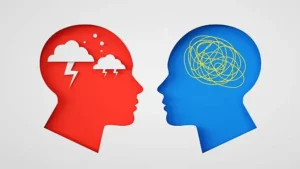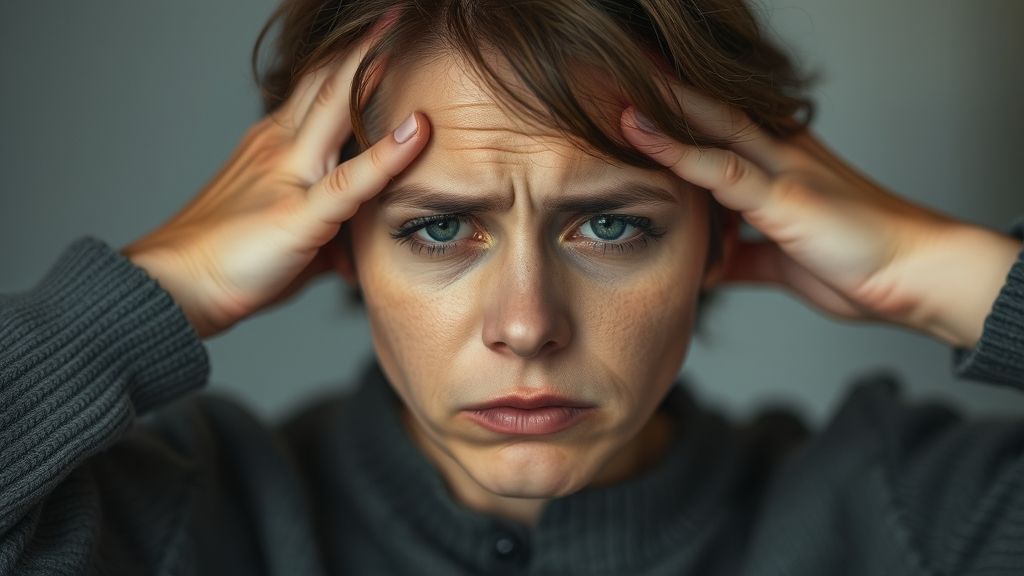Depression is one of the most common yet misunderstood mental health disorders affecting millions of people worldwide. It goes far beyond occasional sadness or temporary emotional lows — it is a serious condition that affects how you feel, think, and function in daily life. What are the Signs of Depression?
Recognizing the signs of depression is crucial for early intervention and recovery. Whether you’re concerned about yourself or someone you care about, understanding the symptoms is the first step toward seeking help.
🧠 What Is Depression?
Depression, also called Major Depressive Disorder (MDD), is a mental illness characterized by persistent feelings of sadness, hopelessness, and a lack of interest or pleasure in most activities. It can affect anyone — regardless of age, gender, or background — and it often impacts everyday activities like work, sleep, appetite, and relationships.
According to the World Health Organization, depression is a leading cause of disability worldwide.
🔍 What Are the Signs of Depression?
Depression can manifest in many different ways. The signs can be emotional, physical, cognitive, and behavioral. It’s important to remember that symptoms can vary from person to person and may change over time.
🔹 Emotional Signs
These are often the first indicators people notice:
Persistent sadness or low mood
Feeling empty or hopeless
Irritability or frustration, even over small matters
Loss of interest or pleasure in activities you once enjoyed (anhedonia)
Feelings of worthlessness, guilt, or self-blame
Anxiety or restlessness
🔹 Physical Signs
Depression doesn’t just affect the mind — it also takes a toll on the body.
Fatigue or low energy, even after resting
Changes in appetite — either eating too little or too much
Unexplained aches and pains, headaches, or digestive issues
Sleep disturbances — insomnia, early morning awakening, or oversleeping
Weight gain or loss
Slowed physical movements or speech (psychomotor retardation)
🔹 Behavioral Signs
Depression often changes how a person behaves on a day-to-day basis.
Social withdrawal — avoiding friends, family, and activities
Neglecting responsibilities — at work, school, or home
Crying spells — frequent and hard to control
Substance abuse — increased use of alcohol or drugs
Decline in personal hygiene or grooming
🔹 Cognitive Signs
Depression can impact your ability to think, concentrate, and make decisions.
Difficulty concentrating or remembering things
Indecisiveness
Negative or distorted thoughts
Recurrent thoughts of death or suicide
⚠️ If someone is talking about death, self-harm, or suicide, take it seriously. Seek help immediately by contacting a mental health professional or emergency services.
🧒 Signs of Depression in Different Age Groups
🧍 In Adults
Often hides symptoms due to stigma
More likely to experience fatigue, insomnia, or irritability
May lose productivity at work
👧 In Teenagers
May appear angry or defiant instead of sad
Trouble at school or changes in grades
Increased sensitivity to criticism
🧓 In Older Adults
Symptoms may be mistaken for dementia or aging
Complaints of pain without a clear cause
Social isolation and lack of interest in hobbies
🔁 Depression vs. Sadness: What’s the Difference?
| Feature | Normal Sadness | Clinical Depression |
| Duration | Short-term (days) | Lasts 2+ weeks or longer |
| Trigger | Response to life events (e.g., breakup) | May or may not have a clear cause |
| Functionality | Can still carry out daily tasks | Impairs work, relationships, self-care |
| Mood improvement | Improves over time | Persistent and pervasive |

🧩 Types of Depression
Different types of depression have unique patterns of symptoms.
1. Major Depressive Disorder (MDD)
Severe symptoms lasting for at least two weeks
2. Persistent Depressive Disorder (Dysthymia)
Chronic low mood lasting for two years or more
3. Bipolar Depression
Depressive episodes alternate with manic episodes
4. Seasonal Affective Disorder (SAD)
Triggered by a lack of sunlight, usually in winter
5. Postpartum Depression
Occurs after childbirth, more intense than “baby blues”
6. Atypical Depression
Mood improves in response to positive events, but with weight gain, excessive sleep, etc.
⏰ When Should You See a Doctor?
You should seek help if:
Symptoms persist for more than two weeks
You’re having thoughts of self-harm or suicide
Depression is interfering with your daily life
Friends or family express concern about your behavior
Early treatment can prevent symptoms from worsening. Don’t wait to get the support you need.
💬 What to Expect at a Doctor’s Appointment
When you consult a healthcare provider:
You’ll undergo a mental health evaluation
They may ask about symptoms, lifestyle, and medical history
Screening tools like the PHQ-9 questionnaire may be used
You may be referred to a psychiatrist, psychologist, or therapist
Treatment might include:
Talk therapy (e.g., CBT or interpersonal therapy)
Antidepressant medications
Lifestyle changes, including exercise, sleep, and nutrition
🧘 Tips for Coping With Depression
Talk to someone you trust — don’t isolate yourself
Exercise regularly — improves mood and energy
Eat a balanced diet — low sugar, rich in omega-3s
Set small goals — even simple tasks matter
Avoid alcohol and drugs — they worsen symptoms
Practice mindfulness or meditation
Stick to a routine — sleep and wake times matter

📋 Summary Table: Key Signs of Depression
| Category | Symptoms |
| Emotional | Sadness, hopelessness, guilt, irritability |
| Physical | Fatigue, sleep issues, appetite changes, and body aches |
| Behavioral | Social withdrawal, neglecting tasks, and substance use |
| Cognitive | Poor focus, indecision, suicidal thoughts |
🏁 Final Thoughts
Depression is more than just feeling down — it’s a real medical condition that deserves understanding and treatment. Recognizing the signs early can lead to quicker recovery and less suffering. Whether you’re personally affected or supporting someone else, knowledge is power.
Don’t hesitate to seek help from a mental health professional. Depression is treatable, and you don’t have to face it alone.
❓FAQs:
Q1: How do I know if I’m depressed or just sad?
If your low mood lasts more than two weeks and affects your ability to function, you might be dealing with depression. See a healthcare provider for an evaluation.
Q2: Can depression go away on its own?
Sometimes mild depressive symptoms may pass, but clinical depression usually requires treatment to recover fully.
Q3: What are the first signs of depression?
Common early signs include fatigue, loss of interest in activities, persistent sadness, and sleep disturbances.
Q4: Is irritability a sign of depression?
Yes. Especially in teens and men, irritability can be a key symptom instead of sadness.
Q5: Can physical symptoms be part of depression?
Absolutely. Body aches, digestive issues, and low energy can all result from depression.
Q6: How do I talk to someone I think is depressed?
Be supportive and nonjudgmental. Say something like:
“I’ve noticed you’ve been feeling down lately — I care and want to help. Have you talked to a doctor?”
Q7: What age group is most affected by depression?
It can affect all ages, but the highest rates are in young adults aged 18–25, followed by middle-aged adults.

